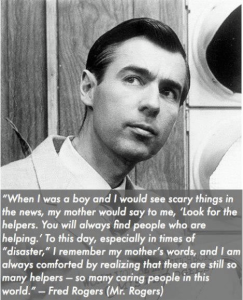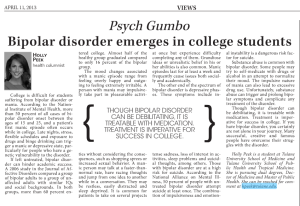Archive for April, 2013
Emotional Recovery after the Boston Bombing
The five days of terror in Boston began with a horrific bombing and ended with a police shoot out, a capture of a terrorist, and finally celebrations in the street. For the victims, their families, and the people living in Boston, the fear, uncertainty and anger that lasted for those five days undoubtedly caused a great deal of mental distress. For the rest of us glued to our televisions watching non-stop coverage of the terrorist attack, the feelings we experienced were equally unsettling.
Victims and witnesses to the violent events of last week may be faced with a range of negative emotions. Not all negative feelings are pathological. It’s natural to feel anger, frustration, helplessness, grief, sadness or fear after a terrorist event. Acute stress disorder and post traumatic stress disorder (PTSD) occur when a person has experienced or witnessed a traumatic event and felt an intense fear or helplessness. They may feel detached or be described as “being in a daze” either while the event is happening or afterwards. They will frequently re-experience the event through recurrent dreams, thoughts, or flashbacks and often avoid recollecting the trauma either by avoiding conversations, people, places, or activities they may associate with the event. They have symptoms of increased arousal, including difficulty sleeping, irritability or outbursts of anger, difficulty concentrating or an exaggerated startle response. Symptoms of Acute Stress Disorder begin shortly after the traumatic event and the symptoms last for less than four weeks. Symptoms of PTSD, on the other hand, can present shortly after or months after the event and the symptoms may persist for years.
For the rest of the country, witnessing the events play repeatedly on television may not be enough to induce Acute Stress Disorder or PTSD, but it can certainly cause a sense of uneasiness and a reminder that there are people out there who commit evil acts when they are least expected. Some psychologists have described disasters caused by terrorism such as 9/11 and now the Boston bombings as “collective traumas.” Because of the large scale and unpredictability, collective traumas serve as a reminder that we are all vulnerable to death and harm and we have limited capabilities to protect those we love, thus threatening our sense of security in everyday life. In order to avoid feelings of uneasiness or paranoia, it’s important to keep the perspective that on any given day, the likelihood another attack will occur and that it will happen to you personally is quite low and it’s important to continue engaging in normal activities.
It’s also important to realize for every evil terrorist, there are millions of good people. The number of heroes that emerged in Boston were exponentially higher than the two hateful young men who inflicted so much pain. On the news, we heard stories of all the helpers that emerged during a time when many Bostonians needed help the most, both physically and emotionally. That in itself is reason enough to instill a sense of hope and comfort.
Bipolar disorder can emerge in college students
“College is difficult for students suffering from bipolar disorder or mania. According to the National Institute of Mental Health, more than 50 percent of all cases of bipolar disorder onset between the ages of 15 and 25, and a patient’s first manic episode often occurs while in college. Late nights, stress, flexible schedules and exposure to drugs and binge drinking can trigger a manic or depressive state, particularly for people who have a genetic vulnerability to the disorder.”
Learn more about bipolar disorder in young adults in the latest article for The Hullabaloo:
For more information:
National Institute on Mental Health: Bipolar Disorder



